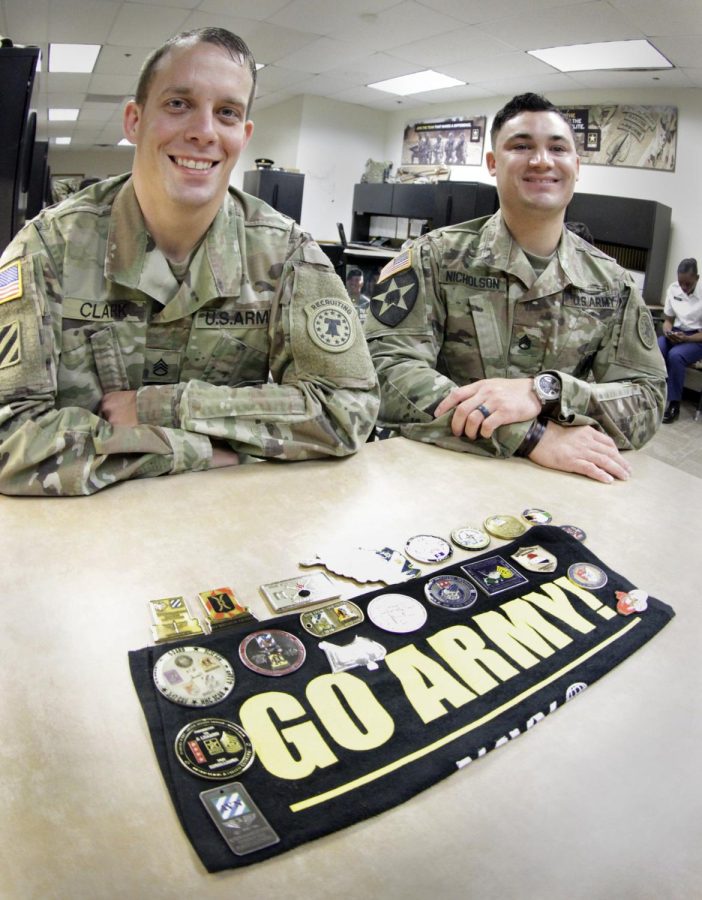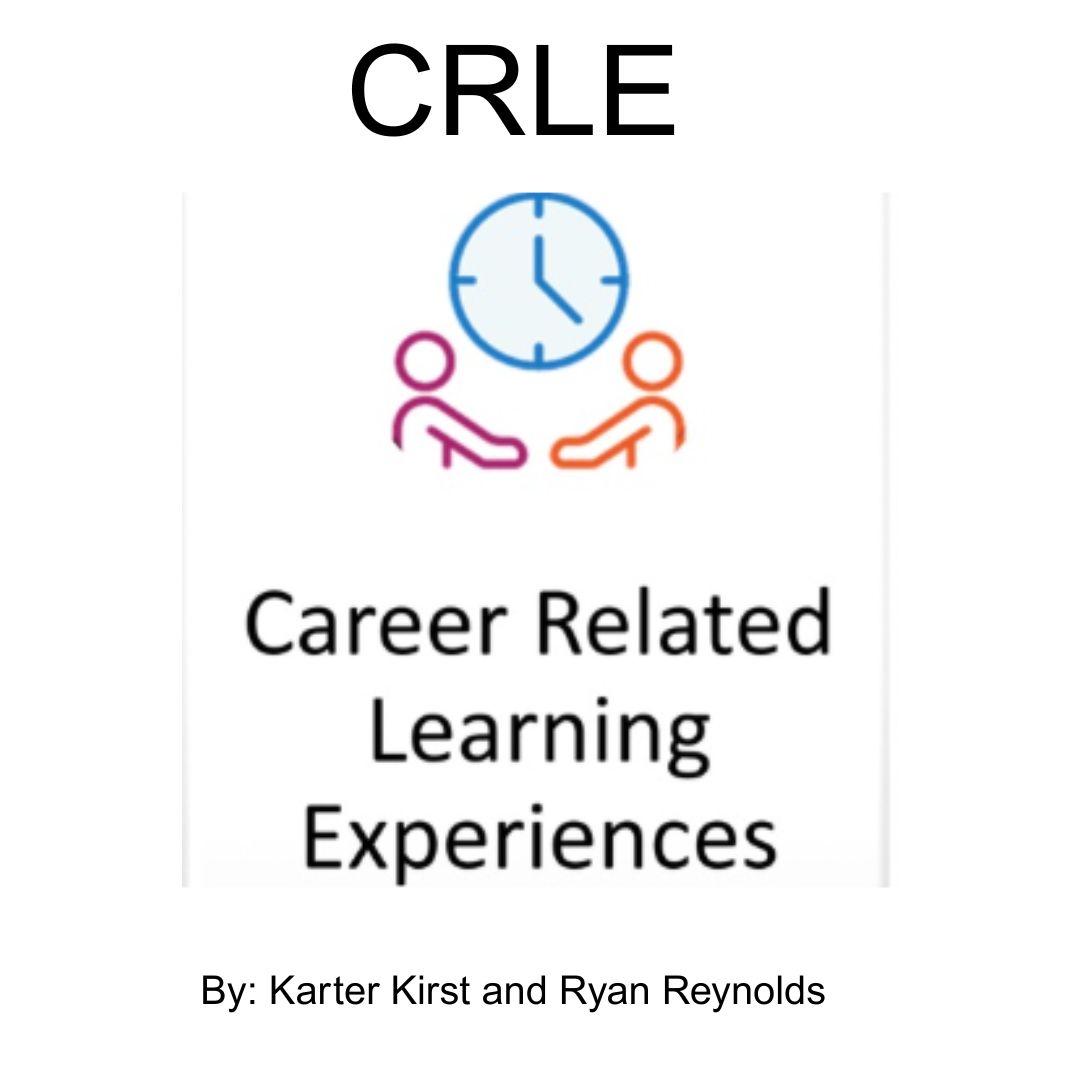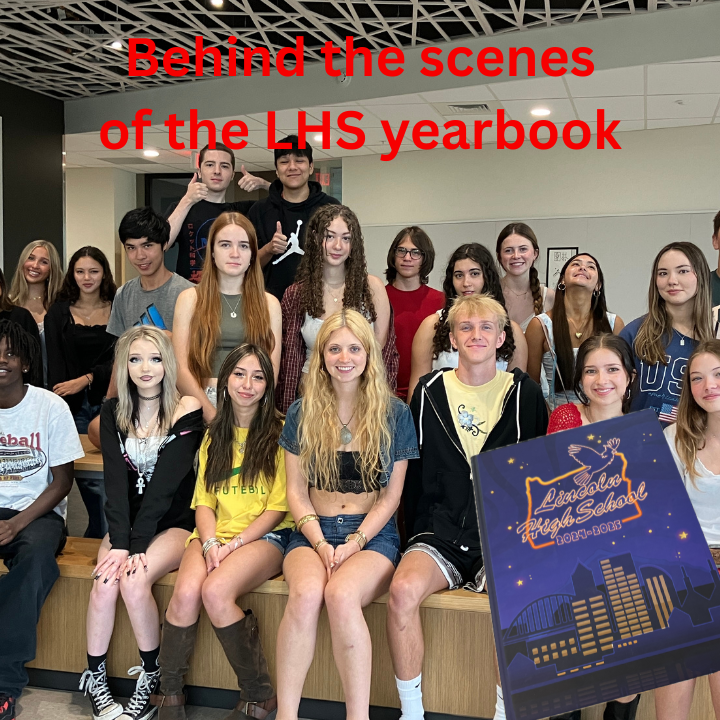Staff essay: High school military recruitment is unethical
Army representatives publicly recruiting for potential candidates.
April 20, 2023
High school military recruitment is exploitative, even if it provides opportunities for students.
Under policy listed in the Portland Public Schools (PPS) Administrative Directive, PPS must allow military recruiters who provide potential career prospects the ability to visit schools. The Every Student Succeeds Act (ESSA), a federal school accountability law, requires that military recruiters have equal access to schools and students as other post-secondary institutions like colleges.
While the military may provide benefits to students, it’s important to recognize who is being targeted by these opportunities. For low-income students, the Military’s Tuition Assistance Program promises to pay up to 100% of the cost of tuition. This makes students with fewer financial resources more vulnerable to military recruitment, as they may be seeking external ways to pay for post-high school education. An executive summary by the Pew Research Center found 75% of veterans cited educational benefits as a main component in joining the military.
Hailey Churchill, a senior on Lincoln’s wrestling team, has experienced military recruiters coming into their wrestling practice. They believe that less wealthy students are exploited by the military’s recruitment efforts.
“The military uses free college as a selling point; they talk about that specifically because it’s targeting people who can’t pay on their own,” said Churchill.
The long-term impacts of service also need to be addressed before students consider joining the military. Veterans experience higher rates of depression and suicidal ideation. The World Health Organization finds that globally 5% of adults suffer from depression, while a 2021 meta-analysis by BMC Psychiatry shows that the amount of individuals affected by depression increases to approximately 23% of all active-duty military members.
Given the impact service can have on an individual’s mental and physical health, Churchill says that recruiters should be providing students with a more complete understanding of the risks involved with service.
“I think that military recruiters don’t usually show a lot of the negative sides of the military and I think they do that on purpose,” said Churchill. “If someone tells you, ‘hey, if you do this, you’re gonna come back with serious PTSD,’ you’re probably not going to want to join.”
Sergeant First Class Daniel Meyer disagrees. He believes that joining the military at a young age can help guide young people into adulthood.
“I joined the army about a week after I turned 17 and I was in basic training a week later,” said Meyer. “It really helped me grow up and have a full understanding of being an adult, providing me with a pathway to remain successful in life.”
Sophomore Mac Curtis, whose interest in joining the military grew after meeting military recruiters at school, expressed how recruitment can provide students with opportunities to advance.
“Military coming to recruit from high schools can be exploitive, but I feel like if kids want to go into the military, and they’re actively trying to get there, then the military is helping them by making the opportunity available and accessible,” said Curtis.
While I don’t believe that all the possible opportunities of military service should be discounted, it’s important to fully inform students on what they are getting themselves into. If recruiters aren’t fully acknowledging the potential inequality of the recruitment processes and disclosing the possible lasting impacts of service, then recruitment at high schools is simply unethical.




